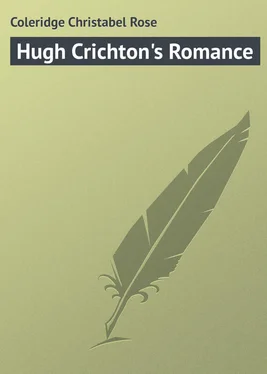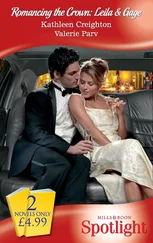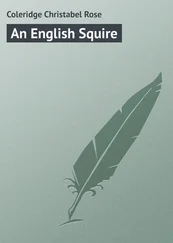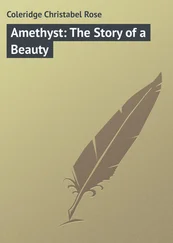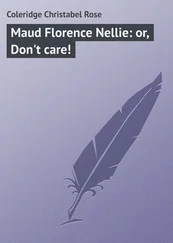Christabel Coleridge - Hugh Crichton's Romance
Здесь есть возможность читать онлайн «Christabel Coleridge - Hugh Crichton's Romance» — ознакомительный отрывок электронной книги совершенно бесплатно, а после прочтения отрывка купить полную версию. В некоторых случаях можно слушать аудио, скачать через торрент в формате fb2 и присутствует краткое содержание. Издательство: Иностранный паблик, Жанр: foreign_prose, на английском языке. Описание произведения, (предисловие) а так же отзывы посетителей доступны на портале библиотеки ЛибКат.
- Название:Hugh Crichton's Romance
- Автор:
- Издательство:Иностранный паблик
- Жанр:
- Год:неизвестен
- ISBN:нет данных
- Рейтинг книги:4 / 5. Голосов: 1
-
Избранное:Добавить в избранное
- Отзывы:
-
Ваша оценка:
- 80
- 1
- 2
- 3
- 4
- 5
Hugh Crichton's Romance: краткое содержание, описание и аннотация
Предлагаем к чтению аннотацию, описание, краткое содержание или предисловие (зависит от того, что написал сам автор книги «Hugh Crichton's Romance»). Если вы не нашли необходимую информацию о книге — напишите в комментариях, мы постараемся отыскать её.
Hugh Crichton's Romance — читать онлайн ознакомительный отрывок
Ниже представлен текст книги, разбитый по страницам. Система сохранения места последней прочитанной страницы, позволяет с удобством читать онлайн бесплатно книгу «Hugh Crichton's Romance», без необходимости каждый раз заново искать на чём Вы остановились. Поставьте закладку, и сможете в любой момент перейти на страницу, на которой закончили чтение.
Интервал:
Закладка:
“But he said it would be right,” said Violante; then, as Rosa laughed bitterly, she went on, pleadingly: “Oh, Rosa mia, it is you who are silly. He will make it right. Indeed, I am happy; but I cannot bear to see you cry. I will act, I shall not care now, and you must keep father from being vexed.” There was much in Violante’s speech of the unconscious selfishness of one to whom the part of comforter was a strange reversion of ordinary life; but her caresses were very sweet to Rosa, who, recovering herself with an effort, said:
“Well, Violante, you can’t expect me to believe in him as you do! I never thought it would come to this!”
“But, Rosa, you will not try to stop it?” Rosa hesitated. Even supposing Hugh entirely faithful, what doubtful happiness lay before her sister; and, if not, what a blank of disappointment, what hopeless injury, what misery how unendurable to the girl who shrank and trembled at a harsh word!
Rosa sat upright and gazed straight before her, while Violante watched, unable to understand her face.
“No!” at length she exclaimed, “you must take your chance with the rest of us. How can I or anyone help it? But – but – I’ll never stop anyone’s love – oh, my little darling, my little darling!” and Rosa broke down into tears, hiding her face in the girl’s soft hair.
“Rosa, you think I could not bear any trouble; but I could – for him.”
There was a new fervour in her voice, and Rosa yielded to it. “Oh, I hope you will be happy,” she said.
“Why, you see I am happy!” said Violante, with a childish laugh. “Father is late; let us have some coffee – you are so hot and tired, I will get it. There is no terrible opera to-night. Maddalena! Maddalena!”
“Ah! signorina, I know who nearly broke the china bowl.”
“Why, I did, Maddalena! I threw it down,” said Violante, as she tripped about after the old woman, whose gold hair-pins were quivering with sly triumph. “But it is quite safe – not a crack in it.”
The coffee was finished; the bright, hot sun went down; and the sisters sat long by the open window in the warm, pleasant twilight. Violante fell into dreamy silence; Rosa also. But there was a great gulf between their meditations, though they were thinking of the same subject and, partly, of the same person.
“There’s father!” cried Violante, as a step sounded. “Oh, I will run away, and you shall tell him.”
“No, no, you little coward; he will be sure to ask for you – stay a minute.”
Violante leant back against the window-sill, her eyes drooping, her breast heaving, and yet her face flushing and dimpling, – the new confidence almost conquering the old fear. Rosa looked far the more frightened of the two. Signor Mattei’s step came up the great staircase quick as a boy’s; he seemed almost to skate across the polished floor, so instantaneously did he bear down on his daughters. In a moment his roll of music was cast aside in one direction, his great white umbrella in another; and, with accents rising every moment into higher indignation, he exclaimed: “Violante, what folly is this that I hear? Is this what all your idleness and obstinacy mean? I’ll not hear a word of it. A lover, indeed! Never let me hear of it again!”
Violante stood breathless, but Rosa interposed:
“Has Mr Crichton been talking to you, father?”
“Ay, and a fine story he brought me. Talking of promises, indeed! How dare she dream of making promises? And you – what have you been doing? Taking care of your sister? No! No! Encouraging her in disobedience and deceit!”
Now Signor Mattei was wont, on all occasions of domestic disturbance, to relieve his feelings by the most voluble scoldings that the Italian temperament could suggest and the Italian tongue express. Had Violante broken the china bowl she would probably have heard nearly as many reproaches; but no amount of experience ever accustomed her to these outbreaks; and, though practically she had never been ill-treated, she feared her father far more than: he guessed; while Rosa usually answered him back more promptly than respectfully, and, loving him better than Violante did, often ended by having her own way. Now she said:
“Why are you angry with Violante, father? She has done nothing wrong. Is it her fault if Mr Crichton loves her and has asked her to marry him?”
“Asked her – asked her ! How dared he ask her ? Now, most undutiful, most ungrateful child, how long has this conspiracy lasted?”
“He came to-day,” stammered Violante.
“To-day? You tell me this folly has begun to-day! You, who have been secretly sighing for this stranger, sighing for him instead of singing! Ah – shame on you! – tell me – tell me — tell me !” in a rapid crescendo , as he seized her wrist and pulled her towards him.
Violante burst into tears.
“Father! how can you speak to her so?” cried Rosa. “Let her go – and I will tell you. Mr Crichton never said a word to her till to-day. Why will you not consent to their encasement?”
“Because I know my duty as a father better. But it is all over. Do you hear, Violante? I have ended it for ever!”
“Oh, father,” cried Violante, holding out her hands imploringly, “I will not neglect my singing, I will practise all day long; but you would break my heart – oh, dear father, I love him;” and the poor child, with unwonted courage, went up to her father and put her arms round his neck with a look and gesture that, could she have called them up at will, would have settled her stage difficulties for ever.
“No, Violante!” Signor Mattei said. “You know what my wish has been. You were not free to promise yourself; and to-day I have made my arrangements with Signor Vasari and have promised you to him.”
“Father, father, I would kill myself first!” cried Violante, dropping on her knees and hiding her face. “Oh, Rosa – Rosa – help me!”
“Hugh, hush, my child. Stand up and control yourself,” said Rosa, with English dislike to a scene – a kind of self-consciousness shared by neither father nor sister. “Go away – go into our room. I will talk to father first.”
Violante rushed away with her hands over her face, and then the other two prepared for war.
Signor Mattei divested himself of his neck-tie, rubbed his hands through his hair, marched up and down the room, and said:
“Now, Rosa, be reasonable, be dutiful, and hear what I have to say.”
Rosa sat down by the table, with a red spot on each cheek, and took up her knitting.
“Yes, father, that is just what I wish. I want to know what has happened.”
“Am I a cruel father? Do I beat or starve you, or do I work all day for my ungrateful children?”
“I think you were cruel to Violante, father, when you called her deceitful.”
“Violante is a little fool. Now, once for all, Rosa, I will have no disputes. This very day I have promised her to Vasari.”
“Father!” cried Rosa, in high indignation. “It is one thing to forbid her engagement to Mr Crichton, and quite another to insist on her marrying Vasari. I would not stand it.”
“But you, figlia mia, have the sense to decide for yourself,” said Signor Mattei, with a little flattery inexpressibly provoking to the downright Rosa. “Your sister is a child, and cannot judge. Consider. This young Englishman goes home. The proud ladies of his house would see him mouldering in his grave before they blessed his betrothal.”
“I don’t believe they would be so ridiculous! And he is quite independent. But I agree with you, father, that it would be a very unfortunate thing if he married her without his friends’ consent, and what we could not agree to. But he speaks confidently of being able to gain it.”
Читать дальшеИнтервал:
Закладка:
Похожие книги на «Hugh Crichton's Romance»
Представляем Вашему вниманию похожие книги на «Hugh Crichton's Romance» списком для выбора. Мы отобрали схожую по названию и смыслу литературу в надежде предоставить читателям больше вариантов отыскать новые, интересные, ещё непрочитанные произведения.
Обсуждение, отзывы о книге «Hugh Crichton's Romance» и просто собственные мнения читателей. Оставьте ваши комментарии, напишите, что Вы думаете о произведении, его смысле или главных героях. Укажите что конкретно понравилось, а что нет, и почему Вы так считаете.
